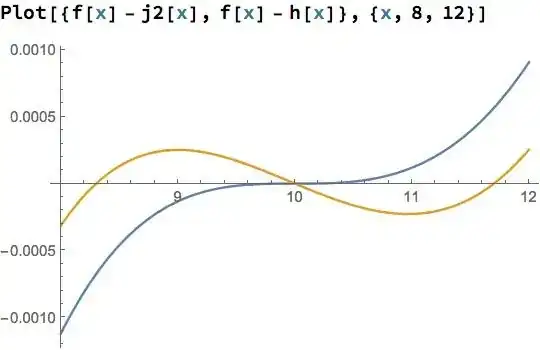Say we want to find the Taylor polynomial of order $2$ for $\sqrt{2+x}$ around $x = 10$.
Simply plugging in the numbers for a Taylor sum $\sum \dfrac{f^k(10)(x - 10)^k}{k!} $ with $n = 2$ then gives us a polynomial approximation of $\sqrt{2+x}$. Is it possible to give a different polynomial expansion than the one from the formula of $\sqrt{2+x}$ of order $2$ around $x = 10$? I personally don't understand how a different polynomial expression with the same order around the same $x$ is to be found. However, the problem I've found asks this precise question.
(Sorry for poor formatting)
